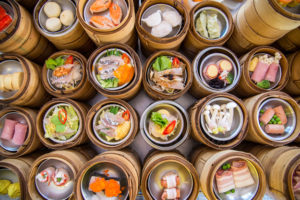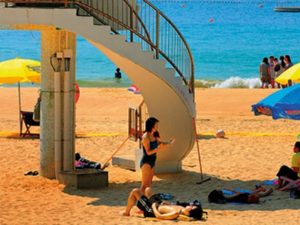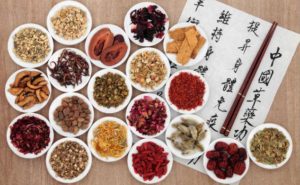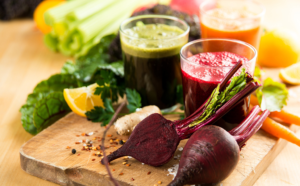 Unlike other posts I write, this will specifically analyze why Hong Kong in particular is a breeding ground for eczema victims.
Unlike other posts I write, this will specifically analyze why Hong Kong in particular is a breeding ground for eczema victims.
It is well-known that allergic diseases are highly common in the Hong Kong population i.e. eczema, food allergies, hay fever, and asthma – AKA the Atopic March.
A first-ever nation-wide research in 2016 also shows the prevalence of eczema is rising in most parts of China, including Hong Kong, where eczema is catching up with developed nations like the UK, known for its notoriously high rates of eczema.
But what exactly is causing the surge of eczema?
Here I analyze on dietary habits, stress, exercise, sleep, and environmental factors of Hong Kong people. Finally, typical local mindsets and misconceptions of eczema.
Note: Even if you do not come from Hong Kong, I’m sure the examples will give you a heads up on what to watch out for!
Dietary Choices and Habits
In terms of Choices, there are four big problems:
1. Too irregular for microbiome adaptation

Hong Kong as a highly consumerist society, like many countries with an abundance of food choices, locals face no difficulty finding new things to eat.
Monday for spicy Sichuanese food, Tuesday American burgers, Wednesday Mexican Tacos, Thursdays for Japanese ramen, Friday let’s go for some all-you-can-eat Japanese buffet. Top off one of the nights with some mango slushie dessert.
There is no exaggeration. Even if you minus a few meals to eat at home, the highly extravagant and diverse diet Hong Kong people have simply does not follow a regular diet. The only thing regular is the irregularity.
Our minds can follow, but the beneficial bacteria part of healthy microbiome in the gut responsible for digestion and processing for food cannot get used to anything, and hence we are on a constantly adapting (and struggling) mode of contact with what we eat. The downside is extra burden on our digestive organs, and delay the building of a host of healthy gut bacteria.
2. Junk food diet
Hong Kong people love instant noodles since a young age e.g. Mamee Noodles. Today, you can occasionally see slightly overweight primary and secondary school kids holding a bag of fried, processed, noodles in a plastic bag dipped in sauce, seasoning, and who knows what other MSG packed chemicals.
Eating cheap ice cream at home after dinner is not uncommon. This comes off with a cost of eating a lot of thickeners, emulsifiers, coloring, and extra added sugar.
In short, Hong Kong people are one of the craziest people who can nimble on snacks all day long which are extremely unhealthy, un-fresh, and promote the development of eczema.
3. Lack diversity of nutrition

The diversity of food choices may suggest we eat a variety of foods equipping us with various nutrition. No, it doesn’t. Because while we eat with diversity, the foods we eat are within the confined box of “lack of multivitamins from natural foods.” Here’s an example of a daily routine:
- Breakfast: Maxim’s fried fish fillet (frozen), white processed toast with butter, fresh scrambled egg, iced lemon tea with sugar.
- Lunch: Cantonese style roasted goose, roasted pork chops, and rice, oily garlic and ginger seasoning, a cup of milk tea.
- Afternoon tea: Maxim’s deep-fried chicken leg or oily French toast with butter and honey syrup, with milk tea.
- Dinner: Eat out with friends for MSG-heavy Japanese ramen, or eat healthily at home with a cup of non-instant noodles.
- Dessert: Ice cream, or mango slushie, coconut milk sago with taro.
Not exaggerated. Very complete picture.
- For youngsters like primary to college students, it is common for them to indulge more in processed junk foods and desserts.
- For working adults, more eating out is common.
- For elderly, the lack of variety for all-rounded nutrition is a concern.
As you see, there are different major concerns across different age groups.
Unless you ate the few strands of vegetables they serve you at lunch, or ate a good amount at home for dinner, you are unlikely to get any plants, which brings me to the next point.
4. Insufficient fruits and vegetables consumption
Ask any expat, Hong Kong is infamous for the inability to find plants to eat. You can of course order from restaurants for a plate of lettuce or bok choy for the same price as your meal itself.
Usually, we get our greens from supermarkets like Wellcome and cook at home. That’s how we strike balance (note: not everyone).
Now let’s talk about dietary Habits:
Simply, Hong Kong people have several simple yet poor habits:
- Many people skip breakfast, or otherwise eat sugary cereals with milk, or processed dim sum packed with chemicals.
- Eating “on the go.” No problem, but the food choices naturally mean… Subway for example, which can be unhealthy. Their breads are packed with lines of unnatural ingredients. The cookies are high-sugar.
- Eating at irregular times. Hong Kong lunch hour ranges from 12 to 2. In mainland China, 12 is considered you better be inside the restaurant or making your way. Dinner here is also 7-8 instead of 6. A random dessert late at night before sleep is also common. Different hours is not a problem, but skipping around and shifting hours irregularly is one.
The S-E-S Trio: Stress, Exercise, Sleep
Stress

Across all ages, Hong Kong people face a colossal level of stress.
If you are a student, you are burdened with daily overdosage of homework, playing the piano, and additional extracurriculars.
If you are working, you are worrying about employment, pressured with mortgages and savings for marriage.
The common resolve to release stress gives a convenient excuse to indulge in unhealthy food choices, and contribute to the lack of exercise.
Exercise
Apart from the increasing trend of a sedentary tech-addicted nation of youngsters playing video games, the older you are, the more likely you will exercise less.
2-3 times of at least 30 minutes of aerobic exercise is recommended per week, and occasional strength training? Not very often. In Hong Kong, you can see a lot of enthusiastic marathon runners. But otherwise, the rest are not so up for it.
Sleep
The Hong Kong type of stress cannot be explained but felt. Sleep is commonly sacrificed for social reasons and more often, work requirements depending on the industry. Over time work and sleep debt, common.
Environmental Factors
If you’re a new reader, there’s this – environment doesn’t mean all things related to being eco-friendly and green. In the scientific context, it means the surrounding factors in our daily environment that affect our body.
For example (source):
- Age
- Residence status
- Exposure to passive smoking (in a densely crowded city like Hong Kong, this is daily)
- Premature birth (increases your risk of eczema)
- Breast-feeding (being breast-fed lowers your risk of eczema)
- Pet ownership (animal dander as source of allergens)
- Delivery pattern (C-section arms with you higher risk)
- Choosy in food during pregnancy
Also common factors like chemical pollution in the air, the physical irritation from Hong Kong’s extreme humidity (where 100% can occur), and also a particularly wet and hot summer.
However, in not only Hong Kong, when people think of factors that aggravate our eczema excluding diet and the trio – the immediate answer is…?
Common Answer 1: “It must be weather. The humidity is too wet here.”
1a. Understanding it’s not so cause and effect, many factors are involved
 For some people, eczema gets better in winter because it’s colder. You get less sweaty from moving around, get less irritated and scratch less.
For some people, eczema gets better in winter because it’s colder. You get less sweaty from moving around, get less irritated and scratch less.
For some, summer is magically where eczema patches gradually disappear and most people explain “it’s the sun and vitamin D.”
While both cases are true, and work differently for different people, one thing is in common – why would your eczema fluctuate so easily?
- Do you happen to have exercised more in the summer?
- Does your winter diet binge on roasted lamb hot pot (common Hong Kong winter treat) or other less healthy dietary choices and habits?
1b. Understanding how weather affects you may give you evidence of the stage of eczema you are at

It’s important to understand which stage your eczema is at, because it reveals different reasons for your flares.
If your eczema improves in summer… it is likely that your eczema is not as severe because of the following likely summer-specific habits: more sweat and exercise compared to winter, an overall decreased food consumption due to the heat (but also have to consider people eating more sugary treats), higher intake of water, higher outdoor sun exposure, etc.
If you eczema improves in winter… then you are likely to be feeling better only because the physical conditions (winter weather) is temporarily relieving you, where the harsh conditions of the summer (sweaty, itchy, hot) as a test of physical discomfort reveals your eczema is rather intense.
Simply, your eczema improves in winter because it has escaped the irritation of the summer. If your eczema improves in summer, then you are recovering. The former isn’t really “improving” but “avoiding normal weather” whereas the latter is actually showing signs of improvement because your skin doesn’t get irritated by the normal summer weather.
Why does knowing what stage you are at matter? So you know what different remedies you should be paying attention to (click to read: Four Stages of Eczema Recovery).
Common Answer 2: “It’s the genes. Can’t change genes.”
Genetics is a common blame. It is true a single parent with eczema or history of atopic march, the offspring holds a higher chance to develop eczema, and the chance doubles if both parents predispose. However, genetic expressions can be changed – by your daily lifestyle habits from all discussed in this article today.
(To be specific, ‘epigenetics’ is the study of how factors that we can control to influence how our genes behave.)
Example: Your genes hold a higher tendency for eczema, but if you eat healthily, do all your basic exercise, sleep, stress balance needs, you are unlikely to manifest eczema.
Common Answer 3: “Air pollution is inevitable and there’s nothing much we can do than to install an air purifier at home.”
There is a partial truth because many of these environmental factors do affect how our genes express for (or against) the manifestation of eczema. But rarely are we exposed to extremely toxic levels of pollution or metal poisoning in tap water, for example, to cause us to overly panic over. Unless of course, you live next to a factory.
The second issue is that usually environmental problems are usually problematic as an accumulation of damage over time, as for many autoimmune and complex chronic diseases. Thus, we should encounter such beliefs by finding the proper weighting of each factor and avoiding all as much as possible.
Common Misconceptions & Issues in Hong Kong
It is common to see advertisements selling purported eczema solutions on TV or in the metro, and clearly without avail. As a high-frequency eczema population, the supply of profitable products will surge. I will not go on a narrative about the inefficacy of most of these products.
The only things you need to buy (if not free already) to reverse eczema is knowledge of how and why your body manifests eczema, and how different types of food can work for or against your eczema recovery.
Also, a strong dose of discipline and realistic expectations of how long it takes to recover your specific case of eczema measured by the accumulated damage.
Here’s what Hong Kong people commonly think about eczema:
-

Traditional Chinese Medicine (TCM). Rooted with history, theory, and limited evidence of effectiveness. What does “seeing doctors” mean? Western medicine as in visiting hospitals and clinics, are considered for acute problems like strong colds and not feeling well in general. Along with a strong Asian culture of Traditional Chinese Medicine (TCM), “seeing doctors” is seen in different ways: 1) TCM is an alternative to western medicine, 2) complementary, 3) separate specialty: western is for acute like surgery and TCM is for chronic problems like “internal heat” (i.e. eating many inflammatory foods recently). Second and third are more common.
- Tendency to believe in promotion. Locals tend to believe adverts on eczema very easily. This is not just Hong Kong but a universal problem when eczema sufferers would attempt anything just to seek a solution. It makes sense but it doesn’t work.
- Misdirected persistence in seeking doctors. Locals tend to think if one western doctor doesn’t do the trick, they need to find a better one. Then later, find a specialist instead of a general practitioner. Then, try several more times with doctors recommended by family and friends.
- Eczema as a virus. Eczema is commonly understood as bacteria/virus in the skin that needs to be killed thoroughly with steroid creams. We know obviously this is not the case that eczema is a manifestation of internal imbalances and not pathogenic. Steroid creams should never be used because they don’t reverse but delay eczema.
- Eczema as a skin disease. While classifications are debatable, and eczema does manifest with skin rashes and itches, eczema is largely (in terms of factors not purely physical on the skin) an internal autoimmune disease – something wrong with the immune system.
- Immediate stand-alone conclusions on nutrition. “Eat more oranges for vitamin C.” “Eat more vegetables for digestion.” “Eat more fish, good for brain.” “Eat more carrots, vitamin A.” “Eat more cereal, good to clear cholesterol in arteries.” “Drink milk, more calcium for bone growth.” While these are super common universal statements, Hong Kong is no exception. The problem is these are generally true except they are quoted stand-alone. It is common to quote a food item for a nutrient, but rarely do people have the concept of integrating all these into a systematic diet, nor analyzing what we shouldn’t eat.
- Strong weighting given to dry skin. Clearly eczema contributes to dry skin but most people place a tremendous of weight on solving the dry skin with commercial products, chemical-packed lotions, and hoping once the dry skin is gone, the eczema will naturally recover. Truth is, moisturizers are to temporarily physically relieve your discomfort but in no way reverses eczema.
Issues facing Hong Kong eczema victims:
 Sick-sensitive. As universally, there is a lot of social stigma against people with skin diseases in case of contagion. Hong Kong people (think SARS) are highly sick-sensitive.
Sick-sensitive. As universally, there is a lot of social stigma against people with skin diseases in case of contagion. Hong Kong people (think SARS) are highly sick-sensitive.- Food culture. We are a eating out and sugary food society. Desserts is a strong culture. So are instant noodles as a good reason for “saving up money” at the sacrifice of health.
- Conservative mindsets. This point focuses largely on how people are dragged on traditional beliefs about eczema as a disease, entangled with all the misconceptions and reliance on steroid creams to kill the “bacteria.” And unwillingness to believe there are solutions (I know first hand because I’ve cold-approached strangers in my University in a friendly way and he appeared disinterested).
- Lack of good information. Sadly, the lack of effective information on reversing eczema is a universal problem. Also consider the impact of topical product industries.
- Lack of allergy specialists. In the universal rise of allergic diseases, there is a huge shortage of trained allergists to offer support on eczema. In Hong Kong, there is 1 allergist per 1,460,000 people. (Let’s give Hong Kong a generous 10 allergists for scale, that’s still an extreme shortage.) Most patients with allergic diseases seek “non-allergy specialists, e.g. General Practitioners, or specialists in Dermatology, Respiratory Medicine, ENT, and Paediatrics.” Most are assumed to have unknown or lack of training in complex allergic diseases.

Despite the numerous of problems present in Hong Kong and to an extent universally, there is a slowly rising positive trend. Most people are acknowledging that steroids are bad (though for the wrong reasons). People begin to realize eczema is an immune problem (but unsure of next steps to take).
There are many common issues about eczema in today. Often whaat we heard or learned have likely changed, hence I highly recommend you to skim through 12 extremely popular misconceptions about eczema that you should know today (click to read).
Summary: Why Do Many Hong Kong People Get Eczema?
Even if you are not from Hong Kong, you can swap the examples of dietary choices and habits with where you reside and see why people in developed countries in general have a higher tendency to develop eczema.
Here are key points of today:
- Significance of food. The food that you eat play a huge role in determining your eczema manifestations. Adapting healthy food choices can reverse eczema and alter genetic expressions even if you are predisposed.
- Predisposition. Multiple environmental factors can predispose for allergic diseases. The best you can do is improve your lifestyle habits to optimize how your genes work in your favor.
- Food culture, as in Hong Kong, as in many places, contain fast food, junk food snacks, sugary items.
- The diversity of food choices prevent your microbiome, your gut bacteria from adaptation, which interferes with your digestion.
- The SES Trio is always worth a mention. How stressed are you?How much sleep you do get? 7-8 hours? Exercise at least twice per week?
- Problematic across age groups. While it is true eczema prevalence decreases with age as people “grow out of it,” not everyone does. And in different age groups, the cause of eczema weighs on different reasons. For youngsters, it is a surge of junk and processed food. From college students to the working class, lack of exercise, burden of stress, and poor sleep is common. For midlife and onwards, the lack of exercise and poor dietary habits play a bigger role.
- Misconceptions and local cultural beliefs. Apart from universal nutrition misconceptions which I cover on this site (e.g. not all fruits and veggies are eczema-friendly), there are misconceptions specific to Hong Kong where people understand eczema as a skin disease to kill with steroids, to see doctors continuously until one works, and underestimate the importance of dieting (because dieting is associated with fat-loss and Asians in general over-encourage the younger generation to be slightly overweight), a general tendency to believe in advertisements, a mixed understanding in medicine with TCM and western medicine, and generally improving but still conservative towards food-based recovery for eczema.
What Eczema Sufferers Can Do
-

What is most healthy? The beetroot, carrot, or celery? Or… the perspective should be why not an integrated diet? Understand the whys in your culture. Be aware of your local common beliefs about what is medicine, how people often treat eczema, and see if it is working. If it works or not, question further. Don’t blindly challenge traditional practices but seek to understand the reasons behind each action. In this age of information overload, the only way to seek clarity is through evidence shown by first-hand experience, and well-backed explanations. Simply medical theory or TCM theory doesn’t cut it.
- Don’t make stand-alone nutrition claims, instead aim for consumption of nutrients in an integrated and multi-source natural food diet. This means understanding there is no one specific diet for eczema, and that most diets that claim to heal eczema simply express the same underlying principles. The key is to acknowledge those principles and adjust to your routine.
- Don’t put too much weight on everything you initially receive. Some put too much weight on weather as the eczema culprit. Some put weight on genetics.
- Use a framework to analyze your lifestyle habits, so you can track your own progress. The common themes I use, just like this article, is: Diet, The Trio, Environmental Factors, Local Mindsets and Beliefs. Then align your findings with common issues faced by your age group for the appropriate weighting of attention. Then, draft your own action plan.
Our understanding of eczema changes every day while its rise of global prevalence is unmatched by public knowledge. This post analyzes Hong Kong locals’ habits to give you a specific picture.
If you have any thoughts or questions, or even ideas for future articles, please post them in the comments below! (Remember, there’s a Facebook support group for discussions.)
(Here’s also a quick follow-through article on 7 common things you think are helping your eczema but are not.)
Thank you for all your help. I am patiently waiting for my recovery. I had nummular eczema. I hope you can help me, i have skin discolouration because of my eczema. How can i cure it? Please help me. My eczema in my legs are still healing slowly, there are still red patches and scaly skin on my legs.
Please help me.
Hi Jessica. I just emailed you =) Keep it up, it’ll fade!
Thank you so much, it really means a lot for me.
HEYY Harrison!
Just wanted to say thank you for putting out this information for everyone, it is the life support for all eczema sufferers out there. I stumbled onto your blog 2 years back, and I stopped using the steriod creams(been using for 7years previously and slowly killing myself) as well as changed to a better diet with more Fruits and Vegetables. Absolutely NO GLUTEN, DIARY, EXCESSIVE SUGAR & PRESERVATIVES, nowadays I always check food labels before consuming. Fast forward 2 years, I am 95% better and with only the occasional small patch on the back of my left knee. THANK YOU SOO MUCH, let’s keep in touch!
Hi Sennett, thanks for popping in the comment. Super glad to hear your great news!! Keep in touch 🙂 Do you happen to reside in HK as well?
All you said does make a lot of sense. I never had eczema until we had to move to mainland China due to my husbands job. You know, being an expatriate in China means “everything is so cheap that you can live like a king” and it messed up my health… after 1 year in China by the first time on my whole life I got eczema. Thank God we moved back to Brazil (Im Japanese-Brazilian), but the eczema got worse and worse until I found out all this information relating eczema to dieting. After a course on oral antifungals and sticking to a low carb paleo diet, Im 100% fine.
I have just read your article. I am a eczema carrier. I was born and raised in Hong Kong. I suffered from Eczema when I was a kid (mild). I went to college in Canada and my eczema was disappeared completely. After finishing school, I went back and lived in Hong Kong again. And my eczema was full blown and way out of control. I have eczema from top to bottom. Now I am back in Canada for almost 2 years. Again, my eczema was cured again. To my experience, Environment is one of the major factor causing agent. Being so hot and humid in HK, I was in constant state of scratching. Stress: being in a super over crowded city, the noise, the people…I was so stressed out.
I have a friend asking me for advise for coping my eczema, I said there is only one way to easy the symptom, it is to go and live somewhere. I mean to get out of HK. I am sorry. This works well with me, my son and my sister.
I don’t think the writer understands the real cause. Even on a non junk food diet, this can happen to anyone. I’ve seen many cases of kids coming back to HK and eczema flaring up and for it to disappear after they leave HK. There must be something in HK. Is it the water? Is it the stress? Is it the EMF all around us?